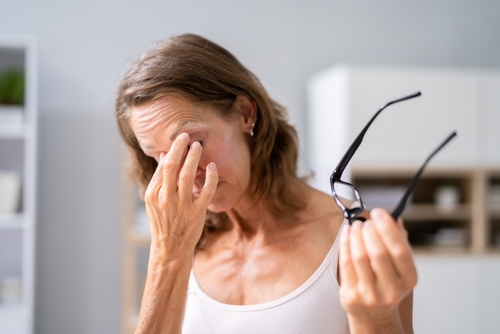
Do you frequently have scratchy, itchy, or dry eyes? The dry eye condition affects millions worldwide, but few people are knowledgeable about it. Exploring dry eye syndrome's causes, signs, and treatments would be beneficial. The advice below can be helpful, whether you experience dryness only occasionally or more chronic symptoms.
What Causes Dry Eye Syndrome?
The development of dry eye syndrome may stem from several variables. A common cause is age. Your tear glands produce fewer tears as you age, making you more susceptible to dry eyes.
The following are additional elements that may cause dry eye syndrome:
Environmental Factors
Experts link environments with dry air, wind, and air conditioning to dry eye syndrome. Your tears may evaporate more quickly due to these elements, making your eyes dry, itchy, and uncomfortable.
Spending prolonged periods in front of a computer or other electronic device can also cause eye dryness. Prolonged screen focus causes a reduction in blinking, which can lead to dry eyes.
Medical Conditions
Inflammation in the tear glands can result from autoimmune diseases, including lupus and rheumatoid arthritis. This inflammation can affect the glands' ability to produce enough tears.
Additionally, diabetes can cause nerve damage and affect the functioning of the tear glands, leading to dry eyes. The same goes for thyroid issues like hyperthyroidism or hypothyroidism, which can reduce tear production, leading to dry eyes.
Medications
Decongestants, antidepressants, and antihistamines can all decrease tear production, causing dry eyes. Medications used to treat Parkinson's disease, hypertension, and acne are other drugs that might cause dry eyes.
Hormonal Changes
Hormonal changes can contribute to dry eyes, especially in women. Hormonal changes during pregnancy, menopause, or when taking birth control pills can cause women to suffer from dry eyes.
During pregnancy, changes in hormone levels can affect tear production, leading to dry eyes. Hormonal abnormalities brought on by menopause might also result in dry eyes. Similarly, women who take birth control pills may also have dry eyes as a side effect.
Symptoms of Dry Eye Syndrome
Individuals may experience different dry eye syndrome symptoms, but the following are typical ones:
Eye dryness
Eye redness
Watery eyes
Blurred vision
Sensitivity to light
Difficulty wearing contact lenses
Managing Dry Eye Syndrome
You can take the following steps to manage dry eye syndrome if you are experiencing symptoms:Use artificial tears
Avoid environmental triggers
Take breaks when reading or using a computer
Blink more to spread tears across your eyes and keep them moist
Use a humidifier to help add moisture to the air, which can reduce dryness
Conclusion
Dry eye syndrome is common and can cause discomfort and interfere with daily activities. You can better manage the illness and lessen your symptoms by knowing the causes and symptoms of dry eye syndrome. Discuss the best therapy with your doctor if you exhibit signs of dry eye syndrome. Proper treatment can allow you to maintain pleasant eye comfort and resume your favorite activities.For more on dry eye syndrome, visit Dr. Martin Hyman, optometrist, at our office in Westwood Boulevard, California. Call (310) 208-3913 to book an appointment today.




